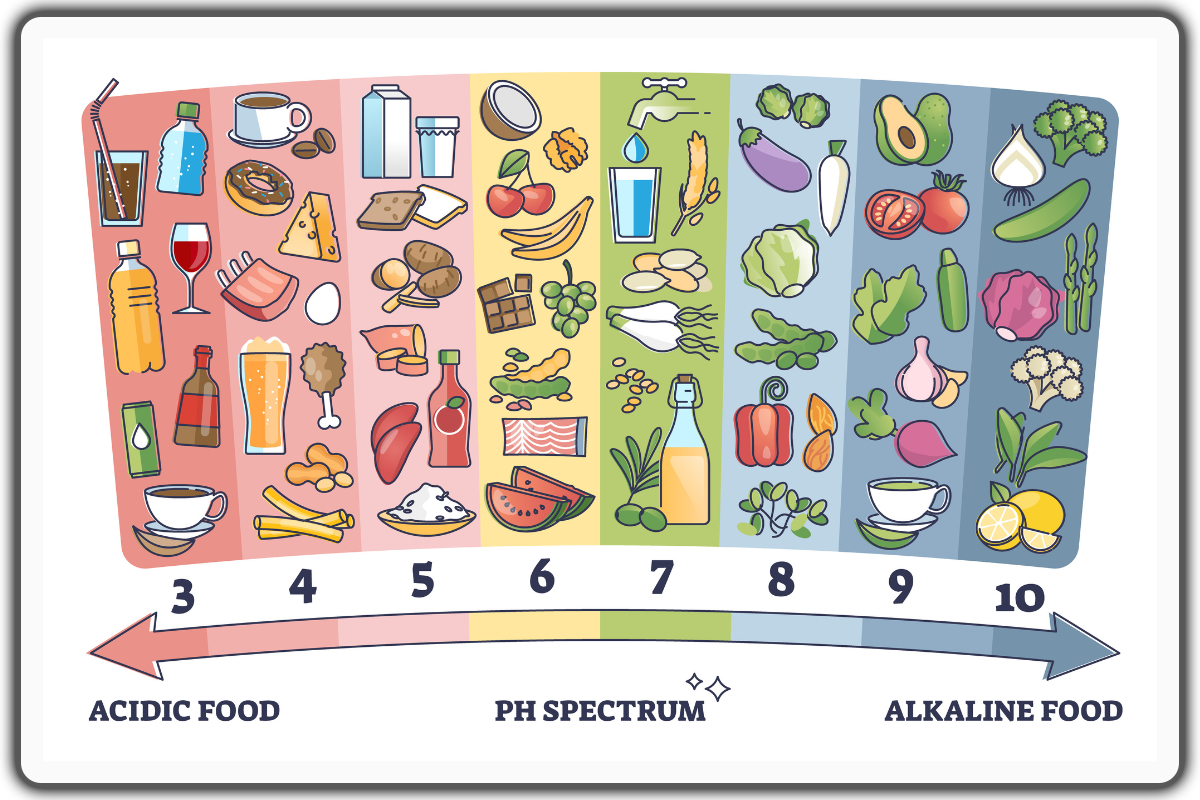
Acidic Foods to Avoid for Optimal
Health and Wellness
Acidic foods [¹] can harm health by causing problems like acid reflux, heartburn, and tooth decay. They might also lead to inflammation in the body, contributing to conditions such as arthritis and digestive issues.
Eating too many acidic foods can weaken bones over time, increasing the risk of fractures. Maintaining good health involves restricting the consumption of acidic foods to and prioritizing a balanced diet abundant in fruits, vegetables, and whole grains.
Understanding Acidic Foods and Their Impact on Health
Learning about acidic foods helps us understand how they affect our health. These foods have low pH levels and include fruits, veggies, and processed snacks. Our body tries to keep its pH balanced, but eating too many acidic foods to avoidcan mess this up. This can cause anything from minor issues to serious health problems. Our body works hard to fix this imbalance, but too much acidity can make us sick.
Eating acidic foods can sometimes cause our stomach acid levels to drop significantly, which might look like acid reflux on tests. We wanted to see how acidic foods affect stomach acid levels, so we tested ten healthy people.
They drank small amounts of acidic foods, and we measured their stomach acid levels. We found that all the foods made their stomach acid drop, and most of the time, it stayed low for more than 30 seconds.
When we looked at other people's records, we saw that many had eaten acidic foods during their tests. This could make it seem like they had acid reflux when they didn't. So, doctors must tell patients to write down everything they eat and not count the times they eat as acid reflux.
Impact of Consuming Acidic Foods
Consuming acidic foods affects our health in various ways, disrupting the body's natural acidity balance and possibly resulting in conditions such as acid reflux, gastroesophageal reflux disease (GERD), and tooth decay. One research explored how acidic foods and drinks impact tooth health [²].
Volunteers tested with substances like cola and orange juice. The study found that these acids weakened the teeth, potentially leading to damage. However, yogurt and soup didn't have this effect. It underscores the importance of understanding how acidic foods can harm teeth and promoting dental health awareness.
Over time, the frequent intake of acidic foods may worsen inflammation, weaken bones, and strain the kidneys, elevating the chances of developing kidney stones or chronic kidney disease. Additionally, acidity can exacerbate inflammation, which is linked to chronic conditions such as heart disease and type 2 diabetes.
Acidic foods may also worsen digestive problems such as acid reflux (GERD), highlighting the importance of moderation in consumption. Frequent acid reflux can lead to discomfort and damage in the esophagus, highlighting the importance of a balanced diet and managing triggers.
What is Acid Reflux and Gastroesophageal reflux disease (GERD)?
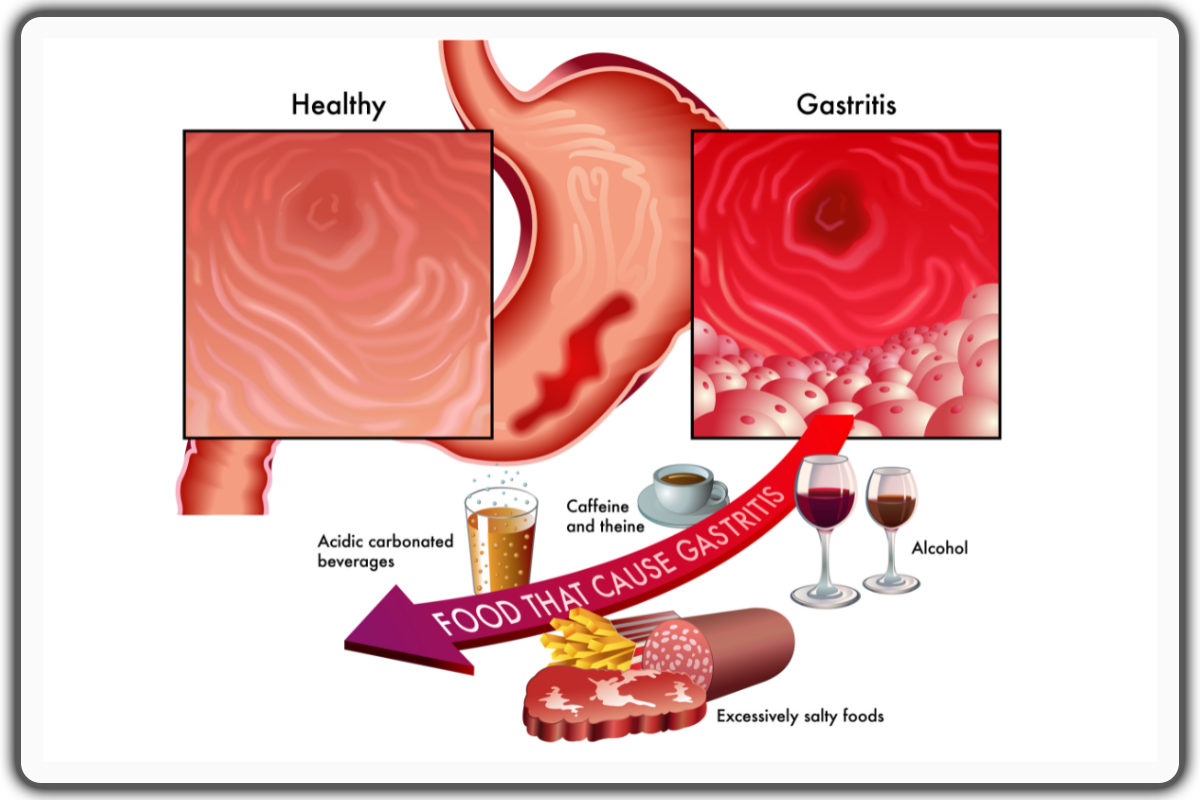
Acid reflux occurs when stomach acid regurgitates into the esophagus, leading to symptoms like heartburn or regurgitation. Gastroesophageal reflux disease (GERD), a chronic manifestation of acid reflux, is typified by recurrent reflux occurrences.
Certain foods or lifestyle factors can trigger symptoms. Management often involves dietary changes, such as following a GERD diet, which may include avoiding trigger foods like spicy dishes and fatty meals while incorporating options like brown rice to alleviate symptoms and promote digestive health.
PH Level of Human Body
The human body typically maintains an average pH level of approximately 7.40, crucial for regulating essential biological processes, particularly blood oxygenation. Moreover, various body parts exhibit distinct pH levels, with the digestive system ranging from highly acidic to mildly alkaline. Below is a breakdown of the pH levels of different body fluids and their respective roles:
- Saliva: Facilitates food passage and starch breakdown. (pH Level: 6.5-7.5)
- Upper Stomach: Initiates pre-digestion processes. (pH Level: 4.0-6.5)
- Lower Stomach: Releases hydrochloric acid for food breakdown and bacterial elimination. (pH Level: 1.5-3.5)
- Small Intestine: Completes digestion and nutrient absorption. (pH Level: 6.0-7.4)
- Large Intestine: Absorbs water and eliminates undigested food. (pH Level: 5.0-8.0)
The Impact of Acidic Foods on Your Body's pH Balance
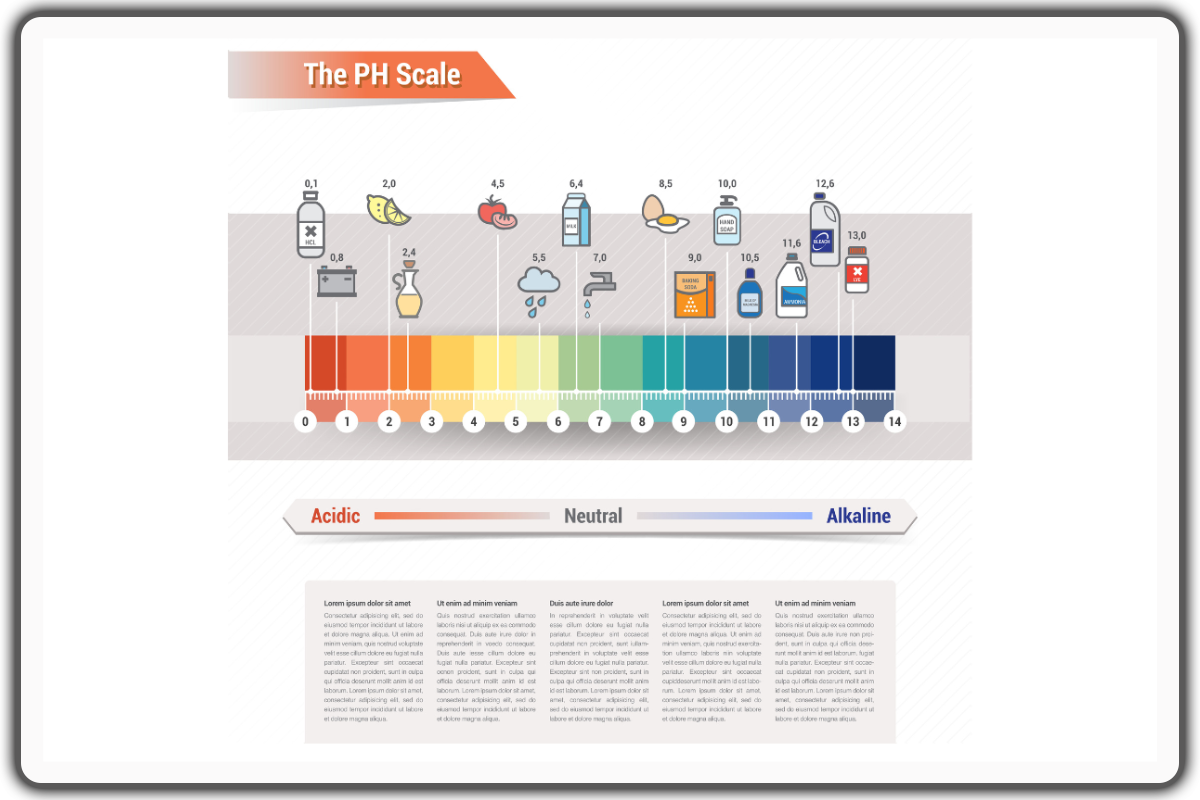
The effect of acidic foods on your body's pH balance is significant. While the human body ideally maintains a slightly alkaline pH of around 7.4, a diet high in acidic foods can disrupt this balance, shifting it towards acidity, a condition known as acidosis.
It is crucial to be aware of acidic foods to avoid as this imbalance may have various adverse consequences, such as reduced energy levels and impaired cellular function. The human body's response to acidic or alkaline foods varies, making it essential to understand how different foods affect individual health.
Furthermore, acidic foods may hinder the body's ability to absorb essential minerals and nutrients, weaken the immune system, and decrease oxygen levels. Recognizing and managing the impact of acidic foods to avoid on your body's pH balance is essential for maintaining overall health and well-being. Consuming acidic or alkaline foods can significantly impact your body's pH balance, a key focus of the alkaline diet.
Acidic Foods to Avoid: Their Impact on Digestive Health and Acid Reflux
When managing acid reflux, it's important to be mindful of acid reflux foods, such as spicy foods and those high in phosphoric acid. Here are the acidic foods to avoid that can trigger acid reflux and should be avoided:
1. Citrus fruits (e.g. oranges, lemons, grapefruits):
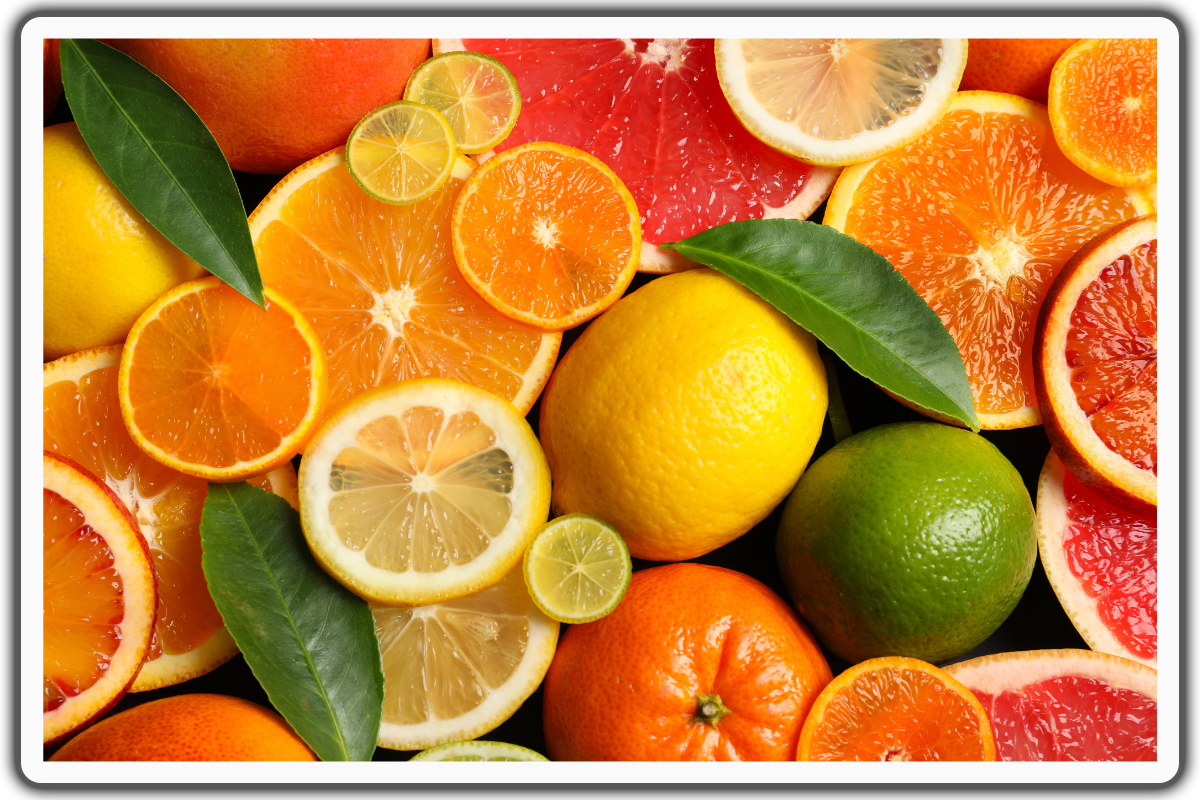
Citrus fruits contain citric acid, which contributes to their tangy flavor. While they offer vitamins and antioxidants, their acidic nature can irritate the stomach lining and exacerbate acid reflux symptoms.
- Oranges
- Lemons
- Grapefruits
- Limes
- Tangerines
- Clementines
- Mandarins
- Pomelos
- Ugli fruit
- Kumquats
2. Tomatoes and tomato-based products (e.g., tomato sauce, ketchup):
Tomatoes are rich in citric acid and malic acid, which give them their characteristic tartness. However, these acids can increase stomach acidity and trigger heartburn in some individuals.
3. Vinegar and vinegar-based dressings:
Vinegar, especially apple cider and white vinegar, is highly acidic because of its high acetic acid content. Overconsumption of vinegar-based dressings or marinades can result in acid reflux and tooth enamel erosion.
4. Processed meats:
Processed meats undergo curing processes often involving adding acidic ingredients like citric acid or vinegar to enhance flavor and prolong shelf life. However, these additives contribute to the overall acidity of the product and may irritate the digestive system.
- Bacon
- Sausage
- Hot dogs
- Ham
- Salami
- Pepperoni
- Bologna
- Corned beef
- Beef jerky
- Deli meats
5. Soft drinks and carbonated beverages
Carbonated beverages contain carbonic acid, formed when carbon dioxide dissolves in water. This acidification process produces highly acidic beverages, which weaken tooth enamel and irritate the stomach lining.
6. Refined grains and baked goods:
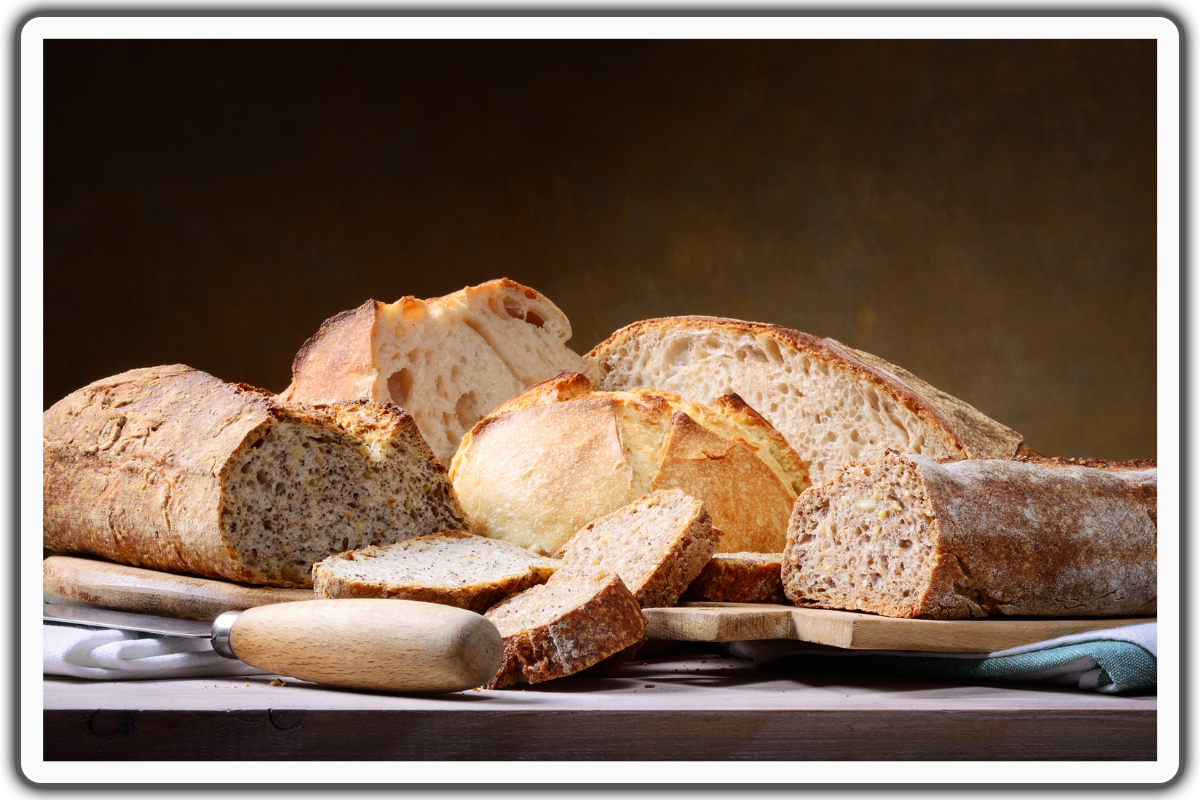
Refined grains and baked goods are often made with white flour, which is more acidic than whole grains. Additionally, certain baking ingredients like baking powder and baking soda contribute to the acidity of these products.
- White bread
- White rice
- Plain bagels
- Pastries (croissants, Danish pastries)
- White sandwich buns
- Crackers (saltines, Ritz crackers)
- White flour tortillas
- Pretzels
- Doughnuts
- Pancakes and waffles made with refined flour
7. Artificially sweetened foods and beverages
Artificial sweeteners like aspartame and saccharin are acidic and can lower the pH level in the mouth, leading to enamel erosion and dental decay. Consuming excessive amounts of artificially sweetened foods and beverages may also disrupt digestive health.
8. Alcohol
Alcoholic beverages like wine, beer, and spirits contain ethanol, which metabolizes into acidic byproducts in the body. Alcohol consumption can increase stomach acidity and weaken the lower esophageal sphincter, contributing to acid reflux and heartburn.
9. Fried and fatty foods
Fried foods are often cooked in oils containing saturated fats and omega-6 fatty acids, which, when consumed in excess, promote inflammation and acidity. Additionally, the high-fat content of these foods can slow digestion and exacerbate acid reflux symptoms.
Incorporate These Alkaline-Rich Foods into Your Daily Meals
Explore the advantages of incorporating various alkaline-rich foods into your daily meals to counteract acidity levels in the body.
1. Leafy Greens
Spinach, kale, and Swiss chard contain abundant minerals such as calcium, magnesium, and potassium, contributing to help neutralize acidity in the body. Moreover, they also provide fiber and antioxidants, supporting digestive health and overall well-being.
2. Cruciferous Vegetables
Cruciferous vegetables: Broccoli, cauliflower, and Brussels sprouts possess compounds such as glucosinolates and sulforaphane, renowned for their anti-inflammatory and detoxifying attributes. They also have fiber, vitamins, and minerals, promoting a healthy gut and immune system.
3. Root Vegetables
Carrots, beets, and sweet potatoes have an alkalizing effect because of their rich mineral content, including potassium and manganese. Also, they contain fiber and antioxidants, which support digestion, blood sugar regulation, and heart health.
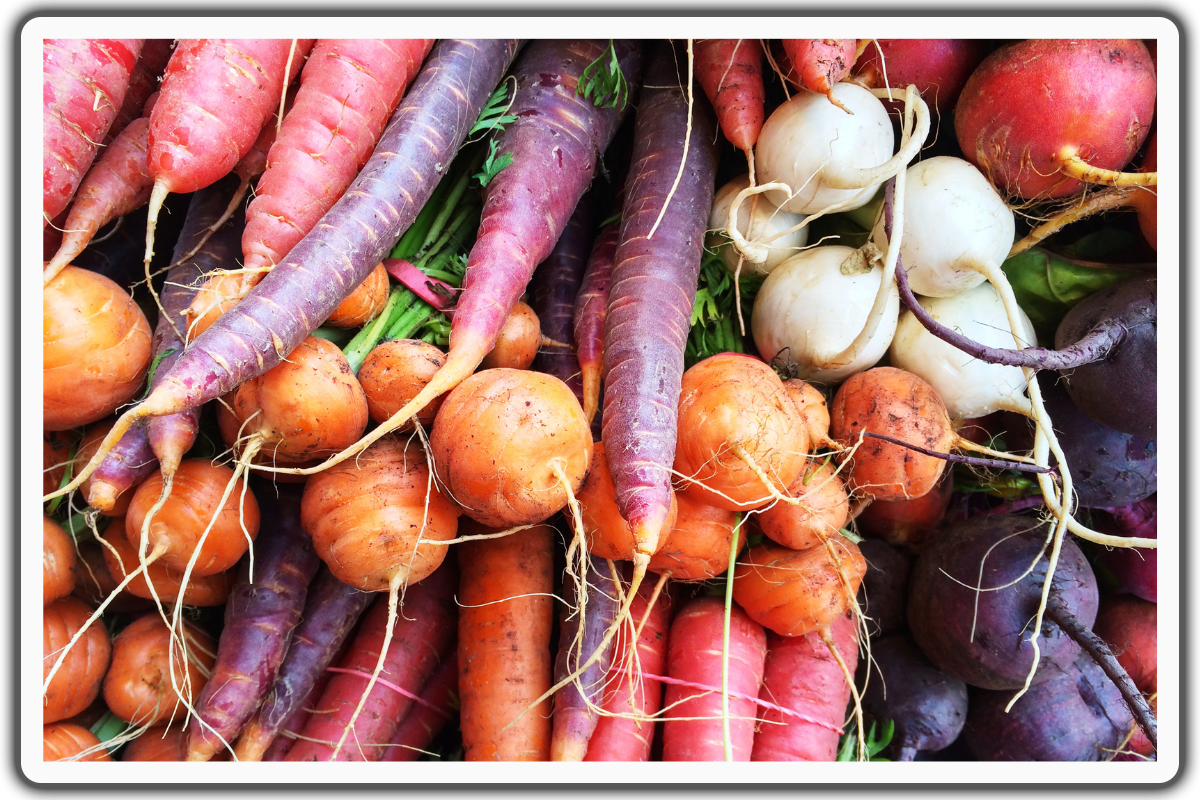
4. Fruits
Bananas, watermelon, and avocado are alkaline-forming fruits that provide essential vitamins, minerals, and antioxidants. Bananas are rich in potassium, while watermelon and avocado are hydrating and contain healthy fats that support heart health and skin.
5. Nuts and seeds
Almonds, chia seeds, and flaxseeds are alkaline-forming sources of protein, healthy fats, and fiber. They're also rich in minerals like magnesium and calcium, which help maintain bone health and support nerve function. Incorporating these into your diet can help you achieve a balanced nutritional intake.
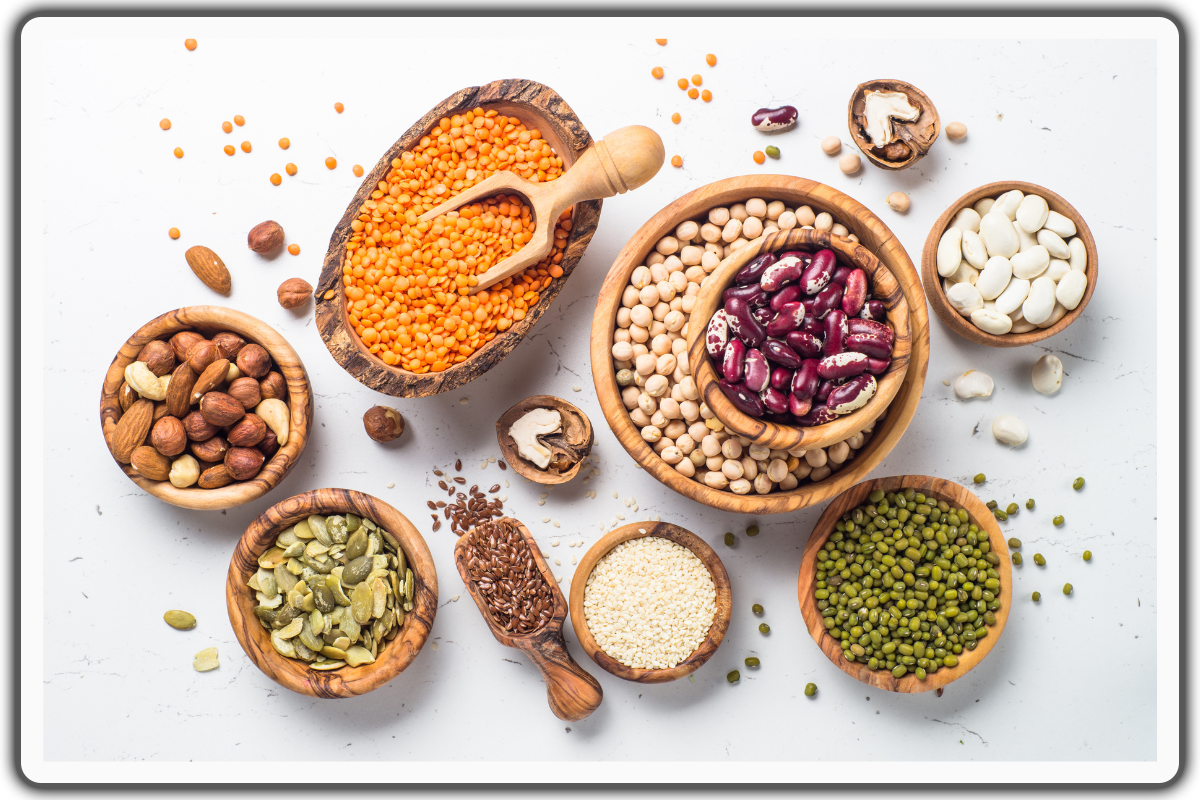
6. Legumes
Chickpeas, lentils, and beans are alkaline-forming plant-based protein sources that provide fiber, vitamins, and minerals. Also, they support digestive health, blood sugar control, and satiety, making them beneficial for weight management and heart health.
7. Whole Grains
Quinoa, millet, amaranth, and brown rice are alkaline-forming grains rich in fiber, vitamins, and minerals. Moreover, they provide sustained energy, support digestive health, and assist in controlling blood sugar levels, rendering them beneficial options for individuals managing acid reflux and GERD.
8. Healthy Fats
Olive oil, coconut oil, and avocado are sources of healthy fats that are alkaline-forming and provide essential fatty acids like omega-3s. Additionally, they support heart health, brain function, and inflammation reduction.
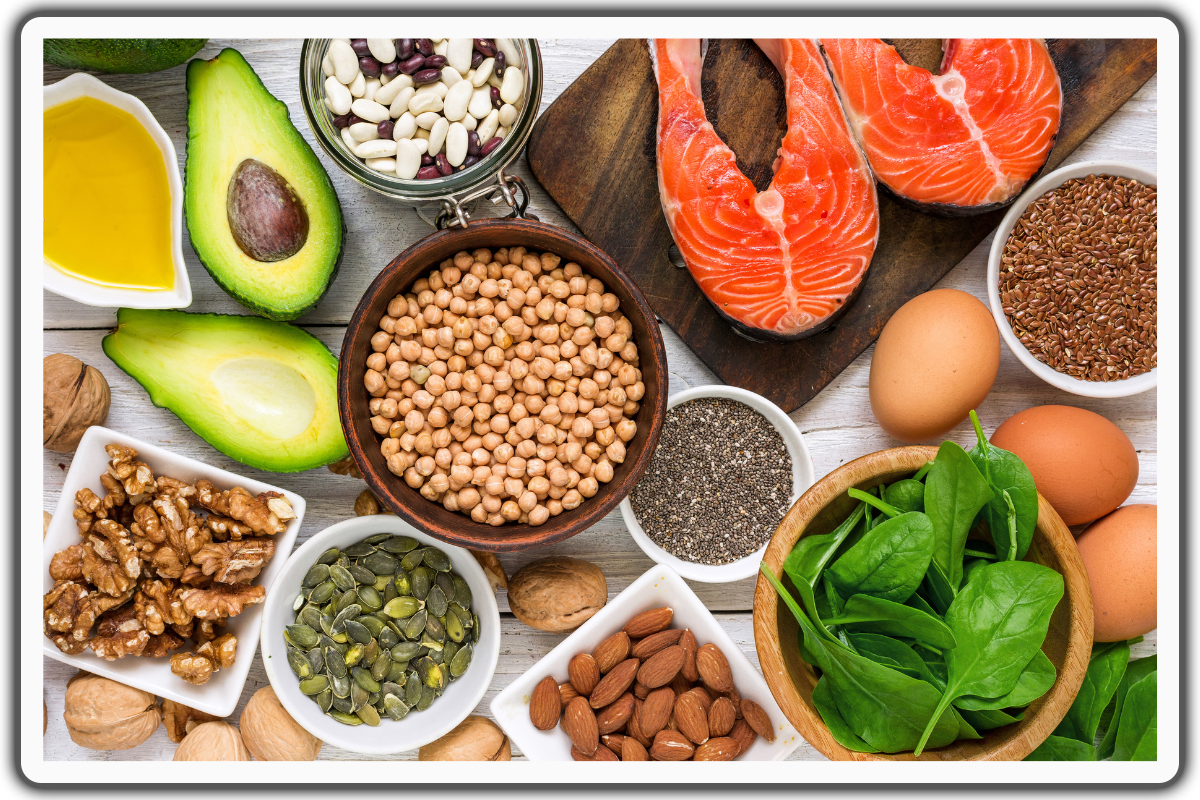
9. Herbal Teas and Green Teas
These are alkaline-forming beverages that provide hydration and antioxidants, supporting overall health and well-being.
10. Alkaline Water
This has a higher pH level than standard water, which helps neutralize acidity in the body and promote hydration and detoxification. It may also support digestive health and reduce inflammation.
Methods for Alleviating Acidity
Here are ways to reverse acidity:
1. Increase Alkaline Foods: Incorporate more alkaline-forming foods such as leafy greens, fruits, vegetables, nuts, and seeds into your diet to help balance acidity levels in the body.
2. Stay Hydrated: Drink plenty of water, preferably alkaline, throughout the day to help flush out acidic waste products and maintain hydration.
3. Limit Acidic Foods: Reduce intake of acidic foods to avoid and beverages like processed meats, sugary snacks, alcohol, and carbonated drinks, which can contribute to acidity in the body.
4. Manage Stress: Practice stress-reducing techniques like meditation, mindful breathing, yoga, or tai chi, which aid in reducing cortisol levels and reducing acidity caused by stress.

5. Eat Small, Frequent Meals: Consume smaller, more frequent meals to avoid overindulging and reduce the generation of excess stomach acid, which can lead to acid reflux.
6. Avoid Late-Night Eating: Refrain from eating large meals or snacks close to bedtime to prevent acid reflux symptoms and promote better digestion while sleeping.
7. Use Natural Remedies: Consider natural remedies like apple cider vinegar, baking soda, or alkaline water to help neutralize acidity in the stomach and promote better digestion.
8. Maintain a Healthy Weight: Strive to attain and maintain good health through a balanced diet and consistent exercise. Too much body fat can make your body more acidic and cause inflammation.
9. Get Regular Exercise: Engage in regular physical activity to promote circulation, digestion, and detoxification, which can help reduce acidity levels and improve overall health.
Conclusion
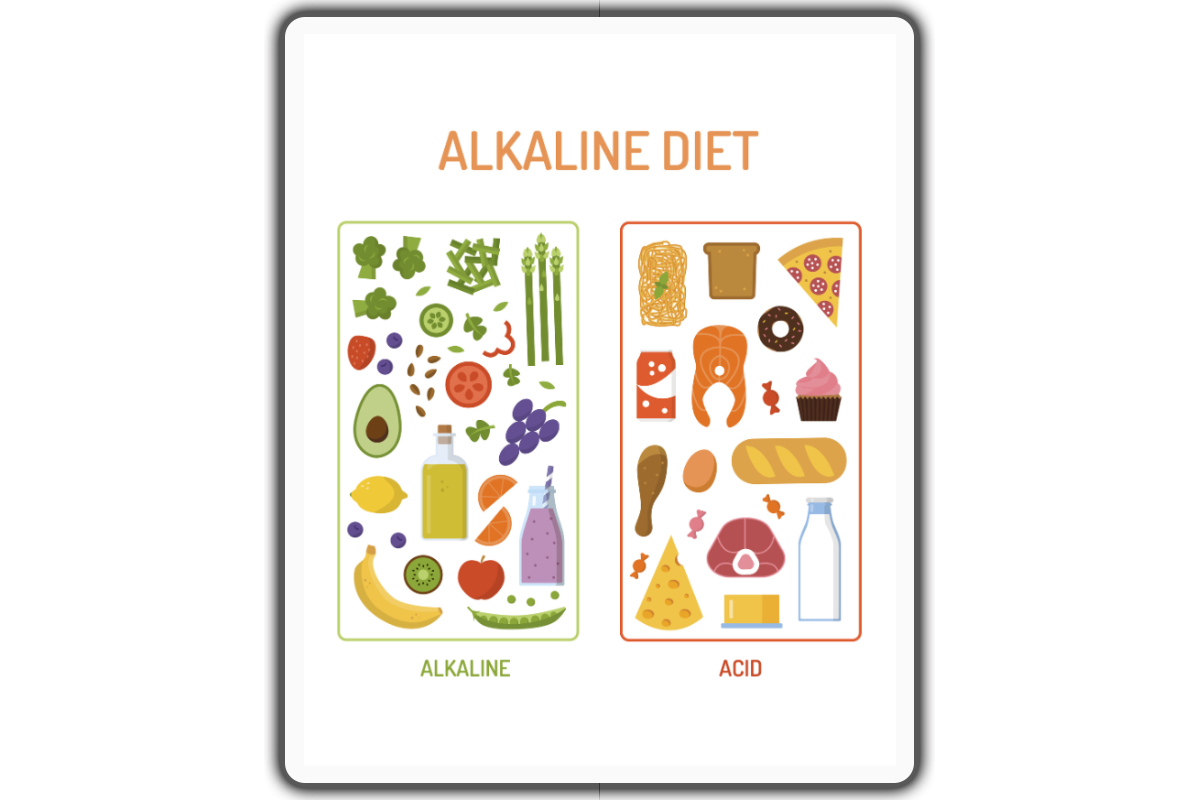
Understanding the impact of acidic foods on our health is crucial for maintaining overall well-being. Individuals can make informed dietary choices by recognizing the effects of acidic foods to avoid, like triggering acid reflux and contributing to inflammation.
Managing acidity levels through dietary modifications and lifestyle changes can help prevent various health issues, such as heartburn and tooth decay. Incorporating alkaline-rich foods into our daily meals can balance acidity and promote digestive health.
Therefore, knowing how acidic foods affect our bodies empowers us to prioritize health and make choices that support a balanced and vibrant life.
References
- Agrawal, A., Tutuian, R., Hila, A. et al. Ingestion of Acidic Foods Mimics Gastroesophageal Reflux During pH Monitoring. Dig Dis Sci 50, 1916–1920 (2005). https://doi.org/10.1007/s10620-005-2961-6
- Wongkhantee, S., Patanapiradej, V., Maneenut, C., & Tantbirojn, D. (2006). Effect of acidic food and drinks on surface hardness of enamel, dentine, and tooth-coloured filling materials. Journal of Dentistry, 34(3), 214-220. https://doi.org/10.1016/j.jdent.2005.06.003
